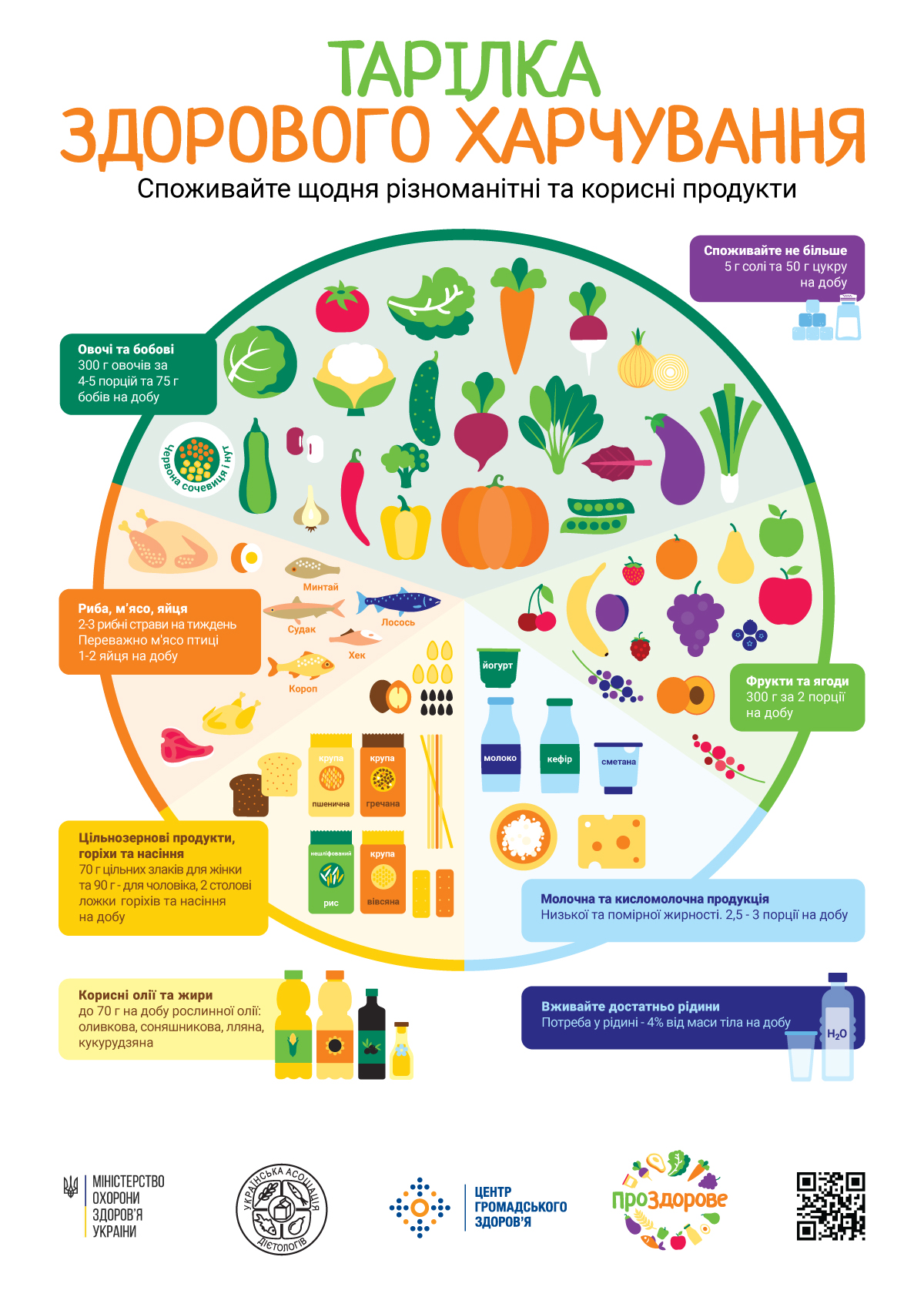
-
Diverse and balanced food:
- takes into account individual energy and liquid requirements;
- meets the need for nutrients in sufficient quantity;
- ensures the ability to work and well-being.
- Fruits and vegetables not less than 400 g;
-
Whole grain, dietary fiber:
- at least 30 g of fiber per day.
Food of animal origin:
- red meat not exceeding 500 g per week or 70 g per day;
- аdvantage of high quality chicken, turkey and fish with addition of sufficient amount of fibre.
-
useful fats:
- 60-80 g, most alpha-linolenic acid (omega-3) compared to linolec acid (omega-6)( 1:-4).
-
Restriction on the consumption of sugar and salt:
- 40 - 60 g of sugar per day;
- 4 - 6 g of salt per day.
-
Quality water:
- 30-40 ml of total liquid per kg body weight per day for adults.
-
Proper conservation and preparation of food:
- conscious food choices;
- observance of conditions of preservation;
- minimal heat treatment.

-
Attentive consumption:
- thorough chewing - good digestion;
- the slow, conscious uses of food - satiety and pleasure;
- hastily the person eats more, than actually wants.
-
Weight control:
- body weight (body mass index 18.5 - 24.9 without considerable fluctuations ± 5 kg);
- Physical activities (not less than an hour of slow intensity);
Healthy and healthy eating can be applied in practice
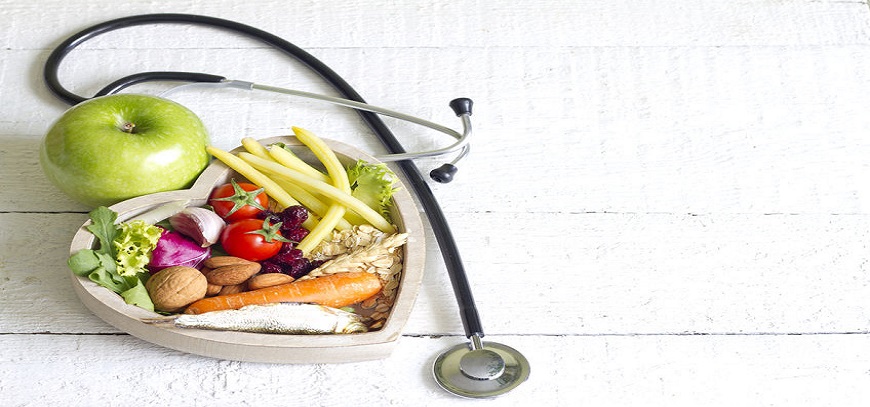
In a basis of the principles it is put such indicators:
- average daily set of products;
- quantitative and qualitative composition of the main feedstuffs;
- power value of a medical diet;
- protein content;
- technology of preparation of dietary dishes.
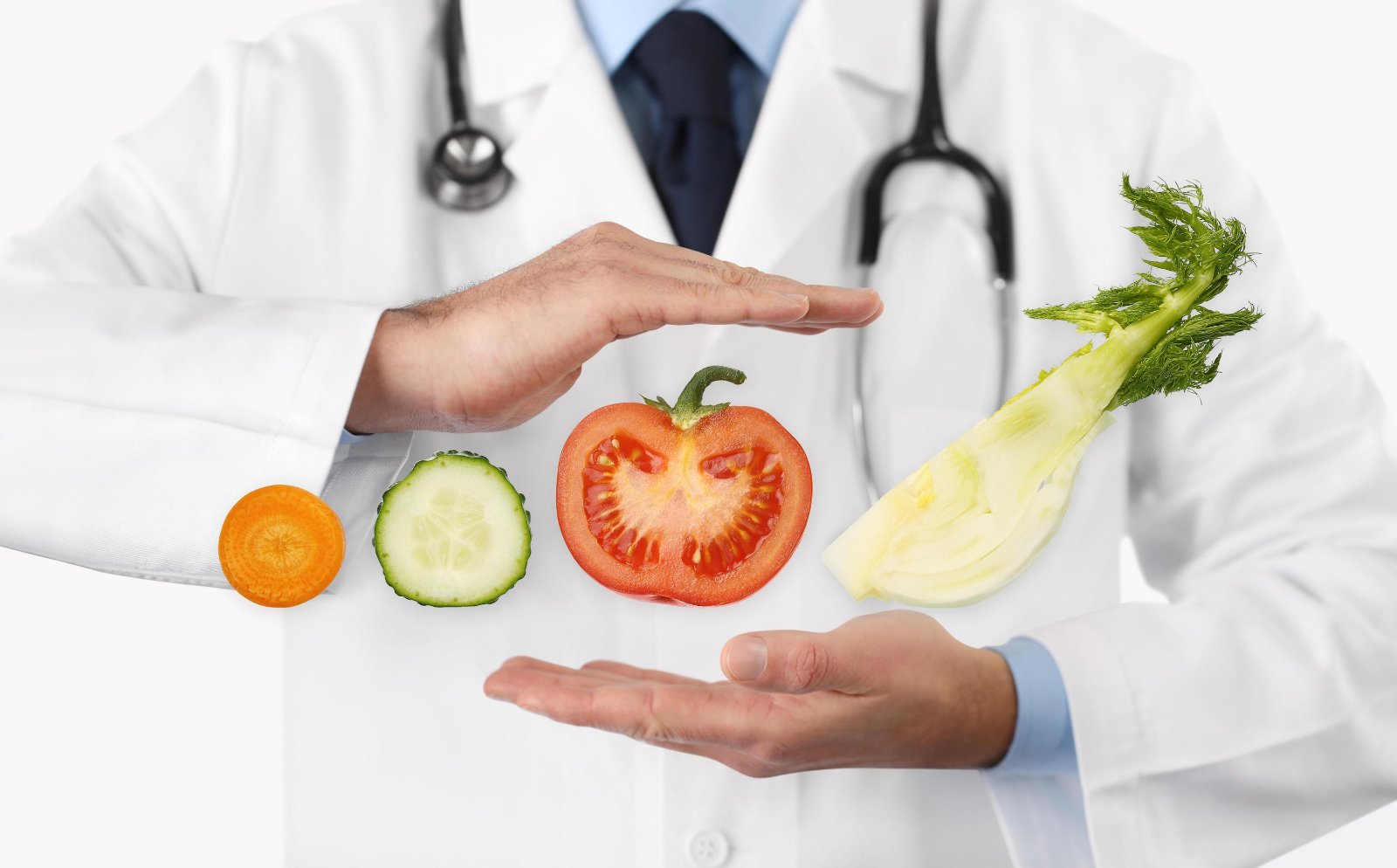
For a medical diet it is necessary to estimate:
- patient's condition;
- hospital regime;
- stage of the disease;
- severity of digestive disorders (presence of malabsorption syndrome, dyspepsia, constipation, etc.);
- severity of renal impairment;
- presence and severity of concomitant pathology.
Food mixtures for adequate therapeutic nutrition are prescribed based on the data of clinical, instrumental and laboratory examinations, taking into account the nature and severity of the disease, the state of the gastrointestinal tract.
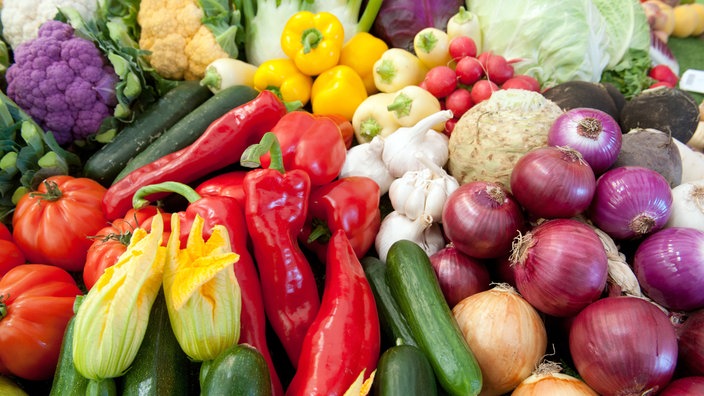
At least a third of all cancers are caused by improper, unhealthy eating.
It’s important to eat foods that contain substances that prevent cancer:
- antioxidants;
- affect cancer stem cells without the risk of affecting healthy stem cells;
- inhibit angiogenesis in tissues;
- stabilize mitochondrial function;
- support apoptosis.
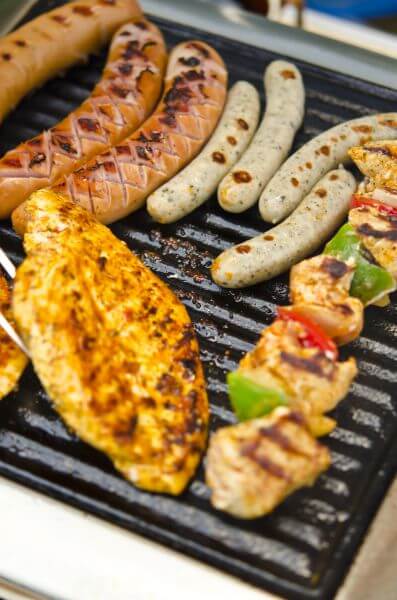
Beware of dietary risk factors for cancer
- Fried food:
- trans - fatty acids (max. 1% allowable);
- Acrylamide: formed at 120 ° C and greatly increased at 170 - 180 ° C, resulting in mutations and the risk of tumors!
- Constant consumption of nitrates and nitrite-containing products: smoked, salted and dried meat, etc.
- Avoid E 249 - E 252 impurities in food production as much as possible.
- Alcohol consumption:
- deprives the body of magnesium, vitamins;
- free radicals damage the structure of cells, leading, among other things, to cancer;
- Men - no more than four, and women - no more than two servings of alcohol a day. At least three completely non-alcoholic days a week.
- Refined sugar and products with hidden "fast carbohydrates":
- inflammatory processes;
- obesity;
- excess insulin;
- increase in insulin-like growth factor, which stimulates the growth of cancer cells.
- Body weight control:
- body mass index 18.5 - 24.9; avoiding significant fluctuations in body weight ± 5 kg;
- Regularly at least an hour a day of moderate-intensity exercise.
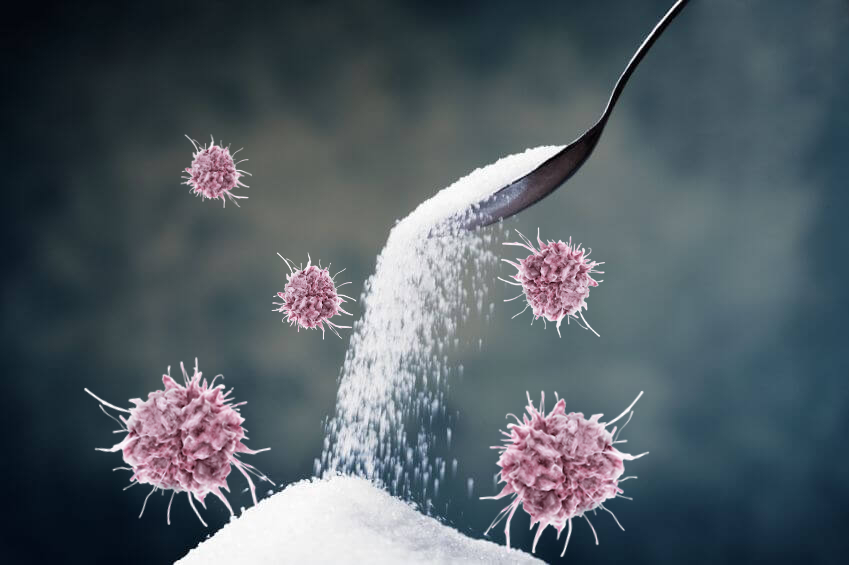
Cancer cells change the entire metabolism in the body and, above all, consume sugar for their own energy. Because of this it is necessary:
- Reduce the amount of carbohydrates, simple sugars and starchy foods in your diet;
- Eat enough fruits, vegetables, polyphenols, antioxidants, and cancer-killing substances.
- increase fat intake. Not only for the consumption of omega-3 and omega-6, which are contained in olive oil, fatty fish and nuts, but also other fatty acids (they are contained, among other things, in butter, cream, etc.);
- Exclude from the diet trans fats, hydrolyzed vegetable fats;
- increase the amount of protein (1.5 - 2 g per 1 kg of body weight). Adjust the consumption of proteins with different amino acid composition (aromatic restrictions, more branched, etc.);
- establish a drinking regime (on average -30 ml per kg of body weight, but depends on the case);
- take preventive measures against malnutrition and to prevent eating disorders;
- if necessary: use enteral, parenteral nutrition or balanced mixtures.
Principles of nutrition in radiation and chemotherapy
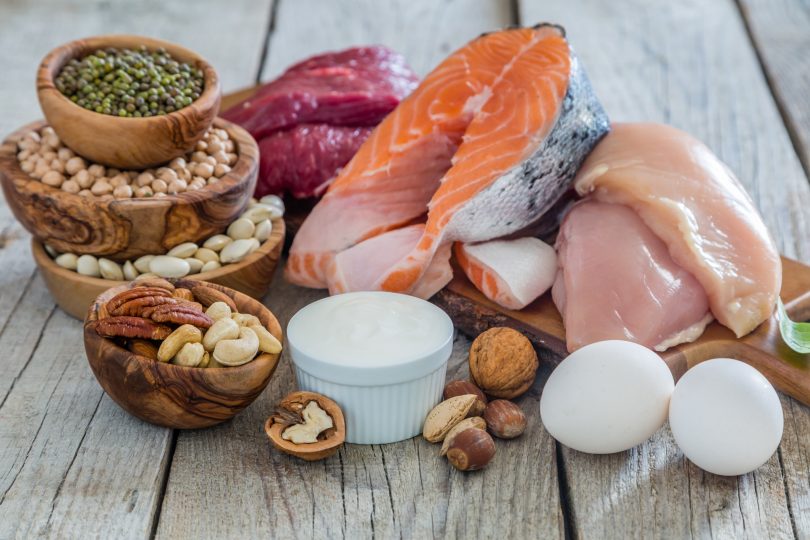
- It is important to start treatment after assessing the nutritional status of various indicators and correction of disorders;
- preventive and curative nutrition of mucositis;
- take preventive measures before the development of malnutrition;
- oral hydration, nutritional support;
- in severe cases, tube feeding and parenteral nutrition for adequate calorie and nutrient intake;
- after special treatment - continuation of artificial nutrition as long as the need remains;
Therapeutic nutrition is important for various cancer patients in all phases of the disease. Modern scientific studies indicate that diet therapy improves the prognosis of cancer patients.
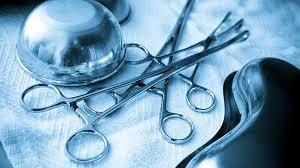
Before surgical treatment, it is necessary to consult a nutritionist to assess the nutritional status of patients (detection of nutrient deficiencies).
From sufficient supply of nutrients depends on:
- complication rate during surgery;
- strong immune system without dysfunction;
- postoperative recovery rate;
- wound healing rate.
Nutrition before general anesthesia:
- Solid foods should not be eaten 6 hours before surgery due to an increased risk of gastric contents entering the trachea;
- Meat and legumes should be avoided 18 hours before surgery;
- Abstinence from alcohol 12 hours before anesthesia;
- Clear liquids can be taken 2 hours before surgery.
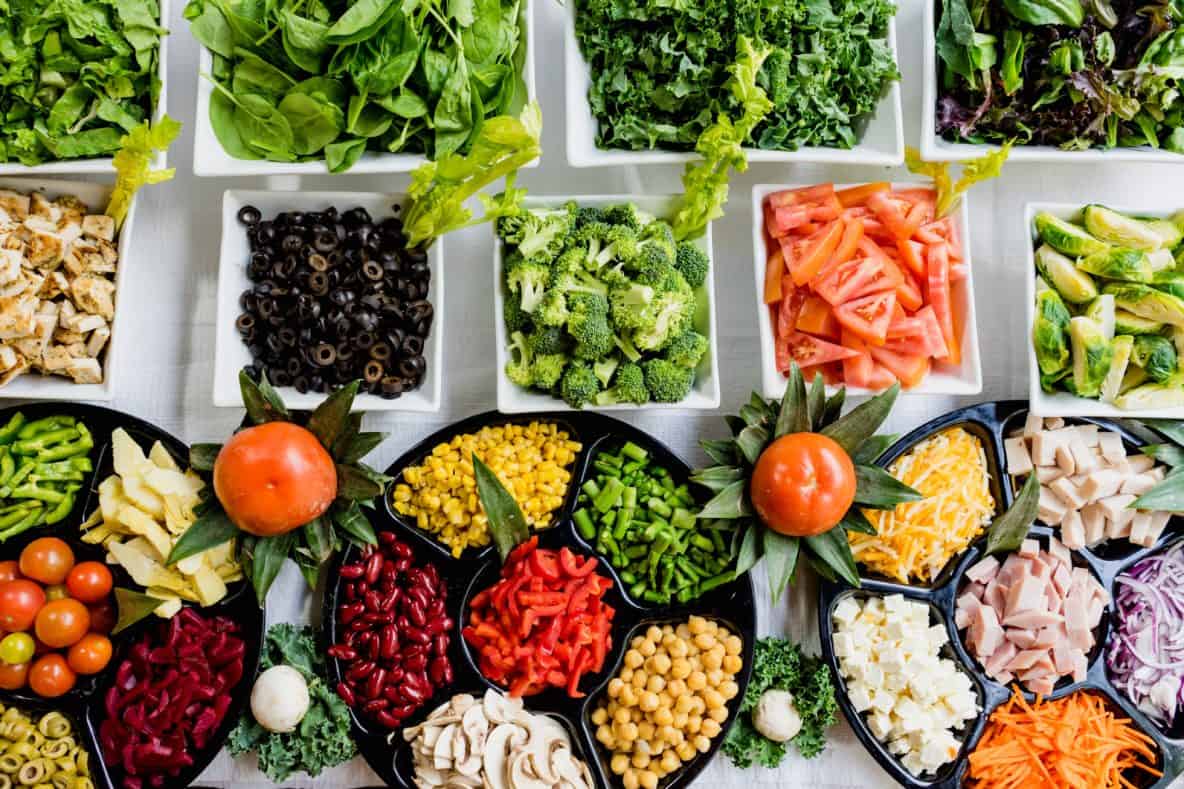
Diet and volume of food after surgery depend on the type of operation:
- Eating is usually allowed 6 hours after surgery (normal, no swallowing disorders, etc.);
- The final decision on diet and nutrition depends on the specific condition and is selected individually.
Recommendations for a healthy diet after surgery:

- extra energy to recover (about 20%) ;
- It is important to increase the consumption of quality protein (fish, eggs, etc.):
- has a positive effect on postoperative tissue regeneration;
- prevents muscle breakdown;
- Sufficient fresh fruits and vegetables (non-acidic after 1 to 2 weeks by gastrointestinal test);
- after 10 days by tender tender fiber (zucchini, boiled carrots, etc.);
- antioxidants that support the immune system;
- drinking regimen (usually 5% of body weight), but decided individually in each case;
- vitamins (especially A, E, C, which support the protective forces and accelerate healing);
- minerals and trace elements (especially selenium, magnesium for stress reduction and zinc for protein synthesis);
- omega-3 fatty acids (accelerate regeneration and reduce inflammation);
- if necessary - balanced mixtures, parenteral nutrition;
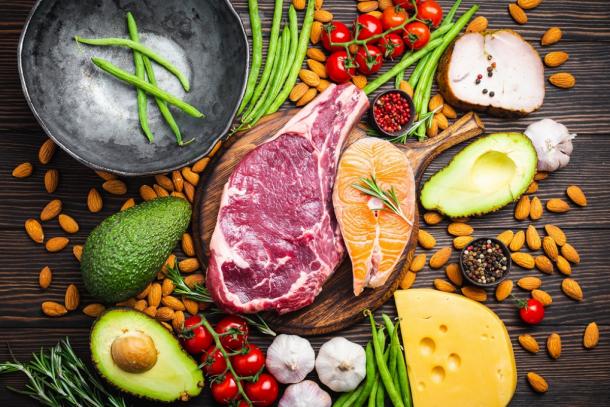
In 1924, the ketodiet became the official diet for the treatment of epilepsy. Based on Dr. Gailin's data, instead of starvation, Dr. Wilder followed a high-fat, low-carb, low-protein diet. The body began to produce the same ketone bodies in the blood that are formed during starvation.
Nutrition in the ketodiet:
- delicious ;
- variety ;
- does not cause hunger.
It is important to avoid all processed vegetable oils , such as margarine, hydrogenated oils, trans fatty acids.
Ketogenic diet:
- fat - 70-80%;
- protein - 15-20%;
- Carbohydrates - about 5%;

Due to the lack of carbohydrates:
- When fats are broken down in the liver, ketones are formed;
- develops so-called "ketosis" (not to be confused with ketoacidosis);
- burns more fat - as a source of energy;
- The body goes into a state of fat metabolism.
Types of ketodiet:
- classic;
- modified;
- medium chain triglyceride diets;
- with a low glycemic index;
- Modified Atkins diet.
Benefits of a ketodiet:
- helps to lose weight, counteracts obesity and is much more effective than a low-fat or low-calorie diet, those who use a ketodiet do not actually count calories; ( https://www.ncbi.nlm.nih.gov/pmc/articles/PMC2633336/ . https://www.ncbi.nlm.nih.gov/pubmed/12679447 );
- effective in diabetes - to lower blood sugar and increase insulin sensitivity; ( https://www.ncbi.nlm.nih.gov/pubmed/16318637 https://www.ncbi.nlm.nih.gov/pubmed/3527829 );
- prescribed to children with epilepsy or Alzheimer's disease, other neurological diseases; ( https://www.ncbi.nlm.nih.gov/pmc/articles/PMC2367001/ );
- positive effects in cardiovascular diseases, hypertension, improvement of high density lipoprotein levels; ( https://www.ncbi.nlm.nih.gov/pubmed / 18700873 );
- Low insulin and low sugar have a positive effect on the appearance of the skin; ( https://www.ncbi.nlm.nih.gov/pubmed/22327146 );
- slows down the growth of tumors because many cancer cells mainly get their energy from sugar. However, the ketodiet should not be used as a substitute for special therapy; ( https http://www.ncbi.nlm.nih.gov/pmc/articles/PMC1819381/ https://www.dw.com/de/ketogene-di%C3%A4t-ein-hoffnungsschimmer -f% C3% BCr-ms-patienten / av-17379123 ).
- lethargy;
- excitability;
- increased hunger;
- sleep problems;
- headaches;
- nausea and indigestion.
- type I diabetes (there are restrictions);
- pregnancy;
- thyroid disease;
- diseases of the kidneys, liver and gastrointestinal tract;
- gout;
- urolithiasis;
- nutrient deficiency;
- hypovolemia;
- micronutrient imbalance.
- advises and helps to switch to ketodiet mode;
- warns, and corrects possible violations when they appear;
- minimizes possible risks of complications;
- monitors general and biochemical blood parameters.
What are the disadvantages of a ketogenic diet?
Some of the following symptoms may occur during the transition phase:
These complaints usually go away in a few days.
To avoid side effects when using a ketodiet, you can start a diet low in carbohydrates.
Contraindications:
This diet may increase some of the risks:
When using - ketodiet dietitian:
Remember that a ketogenic diet should always be used under a doctor's supervision, not on your own!
The link between health and food is stronger than it is thought
Among the factors that shape health, nutrition accounts for about 40%. .
Therefore:
- nutrition is the basis of our health. Who eats correctly can avoid disease!
- those who do not observe a healthy diet risk their health;
- unhealthy eating habits contribute to the development of obesity, diabetes, cardiovascular,musculoskeletal, other diseases and even cancer;
- balanced therapeutic nutrition for various diseases is inseparable in combination with other species and sometimes,- recommended, as independent dietary therapy.
If you are interested in healthy eating or therapeutic diet therapy, you want to dispel myths in dietetics, we will be happy to help you understand and help with general recommendations or specific advice.
